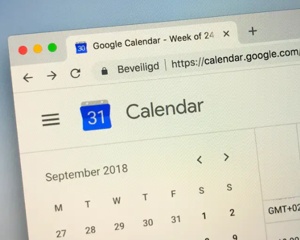| Staying Productive As A Solo Programmer |
| Friday, 23 October 2020 | |||
|
Many developers work as alone as a single-person team. While there are many advantages to this - no need for meetings or other distractions, it can be difficult to maintain the momentum. Here's a look at what it takes to keep a solo programmer productive! The world of programmers is quite conflicting, to say the least! On the one hand, it is widely believed that programmers are lone workers and that they’d rather not interact with other people making part of the developing process of particular artefacts. On the other hand, experienced programmers know that they must be almost always in touch with the different parts of the product on which they’re working. For example, in video game development, the programmer must have a clue of the graphic elements that are to be included in the final product to be able to adapt their code better. However, leaving aside the matter of big, multi-sided projects, the truth is that a lot of developers work alone on their projects. This is why we are taking a look at what it takes to keep a solo programmer productive! Proper Organization The very first thing to do to encourage and keep productiveness at high levels is to use organizational tools. Here, we refer to tools that can help you keep track of everything and, if need be, allow you to share your progress with future team members. While programming by yourself, you can get side-tracked very easily. As such, it’s recommended to act like you’re always about to share your progress with a team. Keep a calendar of your tasks, due dates, and everything else that comes with ordinary team projects. Setting Reasonable Goals One thing is certain; programmers are capable of incredible things. While their skills are quite impressive, they can also work against them. Even the most professional programmers often set unrealistic goals for themselves, and such goals are often the enemies of productivity. Therefore, even if you know you could do much more, setting reasonable programming goals is essential. Indeed, it would be even better if you set lower goals overall and have bigger results, so to say. When setting your goals, keep in mind that they must be on par with your skills, your workflow and time available. Scalable Code is Vital Having a scalable code means that the programmer can easily adapt their initial code to new sets of requirements or specifications - and in particualr to allow it to cope with expanded demand. For example, new features would mean rewriting (refactoring) bits of old code to make them fit the new requirements brought about by those new features. However, scalable code should enable you to edit little to no code whatsoever. For this approach, most programmers rely on modular code. This type of programming/coding splits the final project into chunks of code that fit into each other like pieces of a puzzle. It also prevents minor changes to a piece of code from unintentionally affecting the others. Run Tests Whenever You Can Another productivity killer is an almost complete project that rounds up failure after failure and error after error. You can be 100% productive for the entire time while programming but, at the same time, you can lose all your motivation and productivity after a single failed test. So, what should you do in this case? Well, it doesn’t matter if you’re a beginner or a professional, the key is to test your code as early as possible and as often as you can. Why? You do this, first of all, to get rid of the anxiety that you get whenever you press the “compile” button, for example. The running of tests often makes you address potential mistakes with a clear head and prevents the loss of productivity. Smaller Tasks are the Key This tip is the perfect pair for scalable/modular code. Too many times, people that work alone spend multiple days on the same task. This builds up fatigue and makes one want to finish the task faster to feel an accomplishment, as well as progress. However, many of those tasks could be split into smaller ones. Doing so will allow the programmers to experience achieving their goal multiple times in a short period. In return, this will feed their productivity, as well as their love for what they’re doing – programming! Building Momentum When working alone, especially as a programmer, you have to learn how to build proper momentum. What does this mean? It means starting by tackling the things that boost your motivation and productivity. For example, some people like taking care of the complex bits first and then relaxing while working on easier tasks. Some consider starting off with easier tasks help them build better and more efficient momentum for the more challenging ones. In short, even if programming/coding has a start and an end, so to speak, one does have to find the momentum that fits them when working on a programming project. Learn to Identify Boredom Regardless of the job, tasks must get done. However, programming solo comes with a certain level of freedom that allows you to choose what tasks to complete. A 9 to 5 worker will always have to tackle things in a specific order. A solo programmer, on the other hand, can jump to other tasks or other parts of code when they get bored. Once again, this is not to make programming simpler; it’s just to keep productivity high. The same can be applied when the programmer gets stuck on a complicated piece of code – move on to something that keeps the workflow stable. The Bottom Line So, in the end, what keeps a solo programmer productive? Well, judging by the tips mentioned above, it seems that the workflow is quite essential when it comes to staying motivated and productive. Given the freedom of programmers when writing code, they can maintain a stable workflow and always keep things interesting for themselves and their brains. Now, if we pair a stable workflow with proper organization, reasonable goals, and an effective way of programming (modular), we get the tastiest recipe ever for peak programming productivity. However, keep in mind that the programmer discovers most of these things while gaining experience. If you’re a beginner, don’t expect to be able to identify bits of tedious code right away, and so on. Only with enough perseverance, you’ll learn how to stay productive as a solo programmer!
Related ArticlesWorking At Home: Does It Impact Developer Productivity? Developers Happier Working From Home What Eats Your Programming Time Happy Programmers Produce Better Apps On the Unhappiness of Software Developers To be informed about new articles on I Programmer, sign up for our weekly newsletter, subscribe to the RSS feed and follow us on Twitter, Facebook or Linkedin.
Comments
or email your comment to: comments@i-programmer.info
|
|||
| Last Updated ( Saturday, 18 November 2023 ) |





